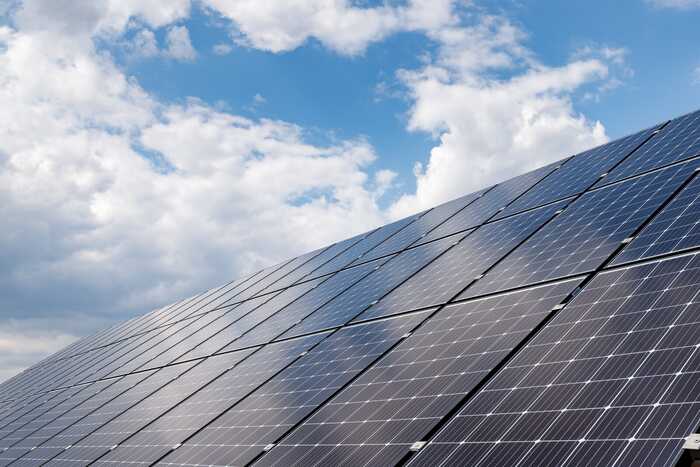Do solar panels work on cloudy days?

Yes. Solar panels do still work on cloudy days, which is excellent news for customers in West Dorset and East Devon, who are considering renewable energy for their homes. Solar photovoltaic (PV) systems only need light to generate electricity, it doesn’t have to be direct sunlight. Even when it’s hidden behind many layers of cloud, the sun is still there emitting light, and solar panels continue to work.
That said, there is a difference in output between direct sunlight and the light on a cloudy day, with direct sunlight generating a lot more electricity. On cloudy days, solar panels produce between 10-25% less electricity. Although it sounds like a lot, it’s not something to worry about. Germany has one of the highest solar outputs globally with 10% of its energy consumption being fulfilled by solar power, and yet it’s also on the list of countries who have the lowest amount of sunshine hours.

What is the "cloud edge" effect?
There is an occasion where clouds can temporarily boost the electricity production of a solar PV system. In that satisfying moment when the sun begins to appear from the edge of a cloud, not only do the panels start creating electricity based on exposure to direct sunlight again, but it can get a bit of a boost from light reflecting off of the clouds, too.

Are solar panels affected by rain?
Structurally, solar panels are built to withstand the elements, so rain is extremely unlikely to have any kind of negative impact on solar panels. In fact, it could even help with efficiency, washing away any accumulated dirt, allowing a bit more light to get through.
If you would like more information learn more about Solar PV Panels in East Devon and West Dorset and how they can be utilised for both home and business use, please do get in touch to enquire about a free assessment of your property.
You might also be interested in...
Posted on September 8th 2022

